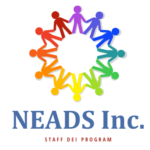Ableist Attitudes: What They Are and Their Impact in the Workplace
Assuming people with disabilities are at a disadvantage is counterproductive and toxic — here’s how to dismantle this workplace issue.
When Josh Basile was 18, he and his family took a beach vacation. Basile grabbed his boogie board and headed into the pounding surf. A giant wave caught him by surprise, smashing him headfirst into the ocean floor. The incident crushed the fifth vertebrae below his skull, and Basile emerged from the ocean a quadriplegic, paralyzed from the shoulders down.
Basile, now 35 and an attorney, disability activist and community relations manager for accessiBe, an AI-powered web accessibility hub, realized that he’d have to reimagine the life he had planned. He might not quite have grasped, though, that in becoming one of 61 million Americans who have a visible or invisible disability, he would face a lifetime of judgments.
What Are Ableist Attitudes?
Ableists judge people based on assumptions and presume disabled people are inferior. They can act out of intentional cruelty or out of true ignorance about disabilities — including the fact that due to the unpredictability of life, anyone can become disabled at any time.
Before his accident, Basile had not known a single person with a disability. “I did not ‘get’ disability,” he said. If he did see someone on the street in a wheelchair, “I had a perspective of ‘I’m so sorry for that person,’” he said. Sympathy, a natural human emotion, can quickly feel patronizing to people with disabilities.
“Even something seemingly innocuous as speaking loudly to someone who is blind, or talking down to someone in a wheelchair, is ableist.”
Ableist attitudes extend to people with visible disabilities as well as invisible disabilities, for instance vision or hearing impairment. These disabilities become even more invisible in the age of digital workplaces. “You may be working every day with people who have disabilities,” said Ashley Eisenmenger, public relations coordinator at Chicago-based Access Living, a nonprofit that helps people with disabilities with housing challenges. “They use assistive technology, they use accommodations, and you don’t necessarily know” that they have a disability, said Eisenmenger, who is blind.
